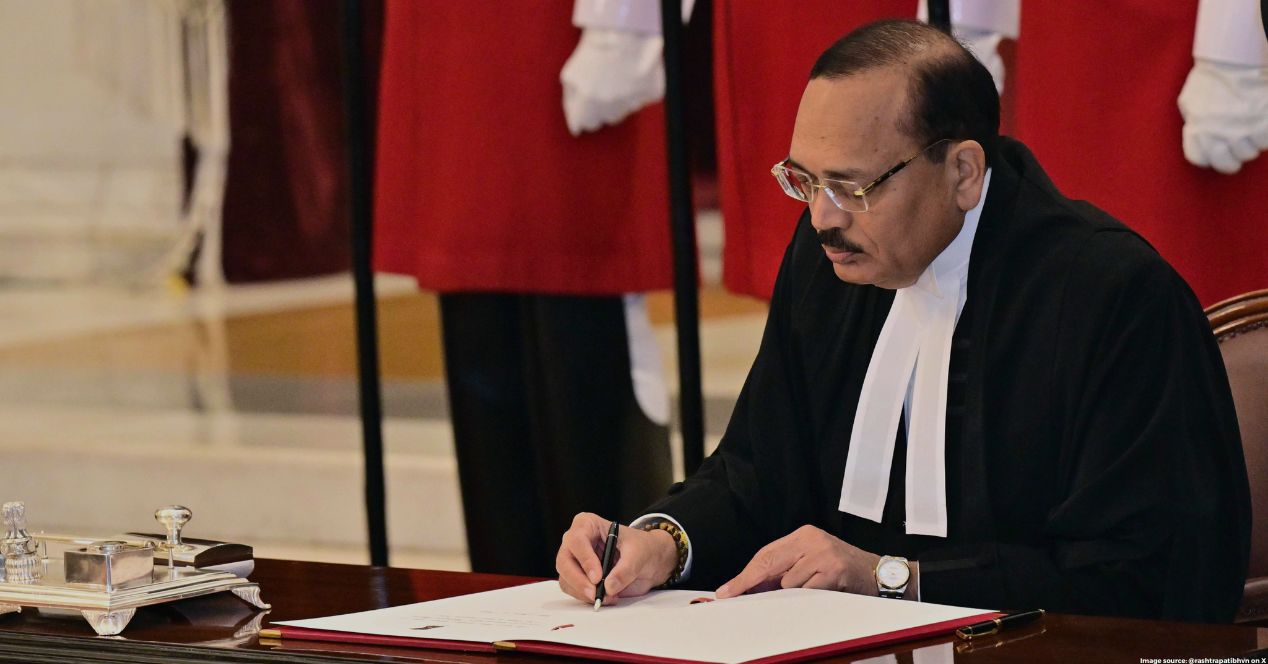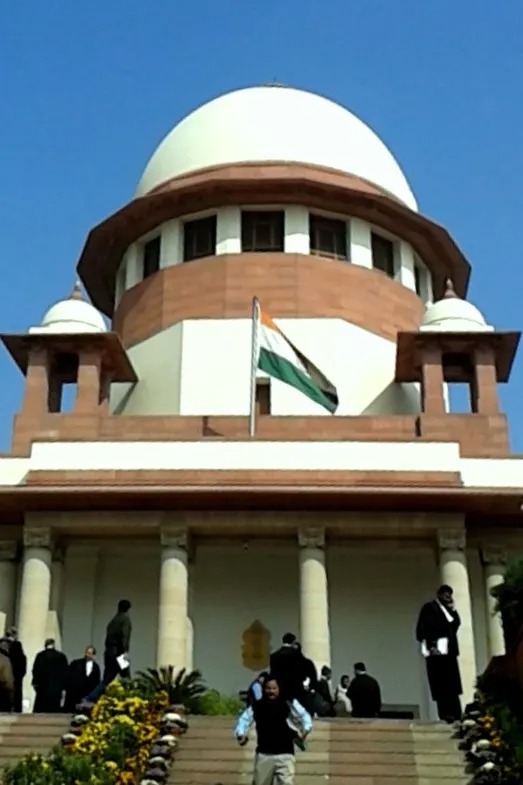Bhaskar Bhattacharya, J.@mdashThis revisional application u/s 115 of the CPC is at he instance of decree holders and is directed against order dated June I, 1099 passed by the learned Additional District Judge, 6th Court, Alipore in Misc. Appeal No. 84 of 1999 thereby affirming Order No. 62 dated February, 2, 1999 passed by the Learned Civil Judge, Senior Division, 1st Court, Alipore in Title Execution Case No. 5 of 1992. The predecessor-in-interest of the present petitioners filed a suit in the Court of Subordinate Judge, 5th Court, Alipore for recovery of Rs. 79.920/- including interest on such amount on declaration that the property described in Schedule A" to the plaint would be subject to a charge in favour of the plaintiff for recovery of the decreetal dues. In the said suit a decree under Order 34 Rule 4 of the CPC in Form No. 5A of Appendix D of the first schedule of the CPC was also prayed.
2. The said suit was decreed by the learned Trial Judge on contested hearing in preliminary form with cost thereby granting a decree for Rs. 79,920/- against the original defendant. It was further declared that the decreetal amount will form a charge on the suit property for the satisfaction of the decreetal amount with costs. The original defendant was thereby directed to pay the whole decreetal amount with cost within six months from the date of passing of such preliminary decree and in default, it was declared that the original plaintiff would be at liberty to realise decreetal amount by putting the charged properties on sale and thereafter a final decree will be passed.
3. There is no dispute that the appeal preferred against such decree ended in dismissal and thus the decree had attained finality.
4. The present petitions put the said decree into execution thereby giving rise to Title Execution Case No. 5 of 1992 thereby praying for realisation of Rs. 79,920/- and costs after selling the property described in Schedule ''A'' of the plaint.
5. In the said execution case, the present petitioners came up with an application for injunction restraining the substituted judgment-debtors from changing the nature and character of the property and from transferring the said property till the disposal of the execution case.
6. The opposite parties on the other hand filed an Application thereby praying for allowing them to pay the decreetal amount in instalments at the rate of Rs. 10,000/- a month.
7. Both the application for Injunction and the application filed by the judgment-debtors for payment by instalment were taken up together and by Order No. 62 dated February 2, 1999 the learned Executing Court directed the judgment-debtors to deposit the decreetal amount of Rs. 84,486.95 paise in four monthly instalments. The prayer for injunction filed by the present petitioner was however refused.
8. Being dissatisfied with the aforesaid order passed by the learned Executing Court, the present petitioners preferred an appeal before the learned first appellate court below and by the order impugned herein the said court has dismissed the said appeal thereby affirming the order passed by the Learned Executing Court.
9. Being dissatisfied, the decree holders have come up in revision.
10. Mr. Mukherjee, the learned counsel appearing in support of the application has contended that the preliminary decree the learned trial Judge having directed the judgement-debtors to pay the decreetal amount by six months and the judgement-debtors having failed to comply with such order, the Learned executing court acted without jurisdiction in granting opportunity to the judgement-debtors to pay off the said amount by four instalments.
11. According to Mr. Mukherjee, the Learned Executive Court has got no such power to grant further instalments.
12. The second branch of argument advanced by Mr. Mukherjee is that assuming for the sake of argument that the learned executing court has got such power, in such a case, an order for grant of further interest on the decreetal amount should also be passed and the learned courts below acted illegally and with material irregularity in not incorporating such order of payment of interest in the said order. Mr. Mukherjee contends that the decree having been passed in the year 1982, the learned executing court acted illegally and with material irregularity in granting instalments in favour of the opposite parties without passing any order for payment of interest for the last 18 years.
13. Mr. Mukherjee further contends that before payment of the entire decreetal amount, the learned courts below ought to have passed an order for injunction restraining the opposite parties from transferring the property or changing the nature and character of the same.
14. Mr. Mondal appearing on behalf of the judgement-debtors has on the other hand supported the orders passed by the learned courts below and has contended that in the decree the learned trial Judge having refused to grant any interest although prayed for by the plaintiff and the plaintiff having preferred no appeal against such decree, petitioners now cannot pray for any direction for payment of interest. Mr. Mondal further contends that his client has already deposited the decreetal dues in accordance with the instalments granted by the learned Executing Court and as such this revisional application has become infructuous and the same should be disposed of as such by permitting the petitioner to withdraw the said amount deposited by the opposite parties.
15. After hearing the learned counsels for the parties and after going through the orders impugned. I find substance in the contention of Mr. Mukherjee that an executing court cannot pass further direction for payment of the amount by instalments when in the decree itself maximum six months time was granted for payment of the decreetal dues. The CPC does not permit executing court to pass such order. Therefore, the order of payment of decreetal dues by instalments was totally without jurisdiction and the learned courts below acted illegally and with material irregularity in passing such direction.
16. As regards the other contention of Mr. Mukherjee. I am at one with him that the property being changed for recovery of decreetal amount, so long the decreetal amount is not paid, the learned courts below ought to have passed order of injunction restraining the opposite parties from transferring, alienating and changing the nature and character of the suit property and the learned courts below thus passed wrong order in refusing the prayer for thereby acting in violation of the decree for charge granted by the learned trial Judge. Therefore, the orders impugned cannot be sustained and are liable to be set aside.
17. Although, the orders are required to be set aside as pointed out above, in my opinion, the opposite parties having already put in the decreetal dues in the Learned Executing Court, no further order need be passed thereby restraining the opposite parties from changing the nature and character of the property and/or transferreing the same.
18. I do not find any substance in the contentions of Mr. Mukherjee that the judgement-debtors should be directed to pay interest over the decreetal amount.
19. As pointed out earlier, the decree being for a specified sum without any further direction for payment of interest, this court sitting in revision against an order passed in execution cannot pass such direction. As an Executing Court, this court now cannot pass any further direction for payment of interest. Therefore, in view of the fact that entire decreetal dues have been paid off and deposited in the executing court, no further order of injunction can be passed as the judgement-debtors have complied with the decree by payment of money although paid long after the time specified therein.
20. Since there was no direction for payment of interest after passing of decree and the plaintiff having accepted such decree now cannot pray for further interest Therefore, although the orders passed by the learned courts below are set aside, this court is unable to pass any further direction either for payment of interest or injunction in favour of the present petitioners. The revisional application is thus disposed of with the above observation with cost in favour of the petitioner which 1 assess at 200 gms.

